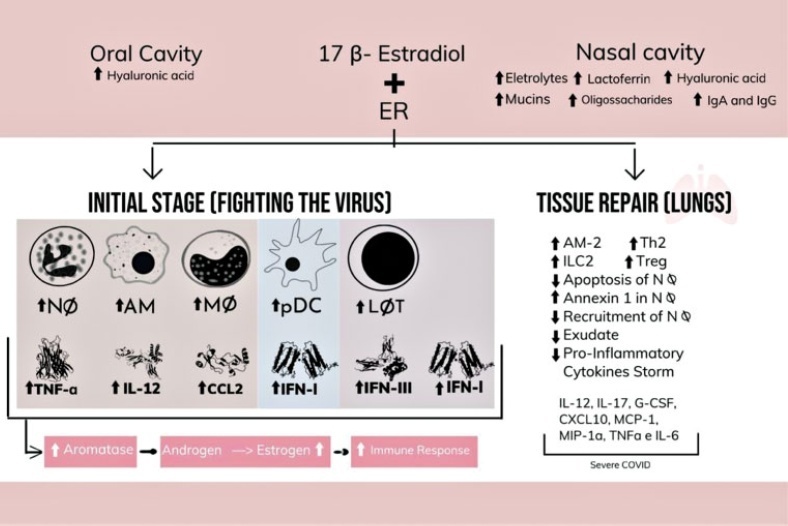Summary
Revista Brasileira de Ginecologia e Obstetrícia. 01-24-2021;43(12):940-948
Women have metabolic, immunological, and genetic variables that ensure more protection from coronavirus infection. However, the indication of treatment for several pathologies and contraception is determined by hormones that have adverse effects and raise doubts about their use during the COVID-19 pandemic. Therefore, the present study searches women specificities and the relation between female sexual hormones and COVID-19, and reports the main recommendations in this background. To this end, a review of the literature was conducted in the main databases, auxiliary data sources, and official websites. Therefore, considering the hypercoagulability status of COVID-19, the debate about the use of contraceptives due to the relative risk of thromboembolic effects that they impose arises. However, the current available evidence, as well as the recommendations of main health organs around the world, demonstrate that the use of hormonal contraceptives must be maintained during the pandemic.

Summary
Revista Brasileira de Ginecologia e Obstetrícia. 05-18-2020;42(4):218-227
To identify current strategies and recommendations for venous thromboembolism prophylaxis associated with the pregnancy-puerperal cycle, a condition of high morbidity and mortality among women.
The literature search was performed between May and October 2019, using the PubMed database, including papers published in Portuguese, English and Spanish. The terms thromboembolism (Mesh) AND pregnancy (Mesh) OR postpartum (Mesh) were used as descriptors, including randomized controlled trials, meta-analyses, systematic reviews and guidelines published from 2009 to 2019, presenting strategies for prevention of thromboembolism during pregnancy and the postpartum.
Eight articles met the inclusion criteria. Many studies evaluated were excluded because they did not address prevention strategies. We compiled the recommendations from the American Society of Hematologists, the American College of Obstetricians and Gynecologists, the Royal College of Obstetricians and Gynecologists, the Society of Obstetricians and Gynaecologists of Canada, the American College of Chest Physicians and the Royal Australian and New Zealand College of Obstetricians and Gynaecologists.
There are some gaps in the research, and clinical studies with appropriate methodology are needed to support decisions made regarding the risk of thromboembolism in the perigestational period. Thus, the attention of the professionals involved in the care of pregnant and postpartum women is crucial, as it is a condition associated with high morbidity and mortality.